
Top Ten Beach Reads to Warm up a Long Hot Summer
22.07.23
Philosophy Football's Mark Perryman makes his annual selection of holiday page-turners
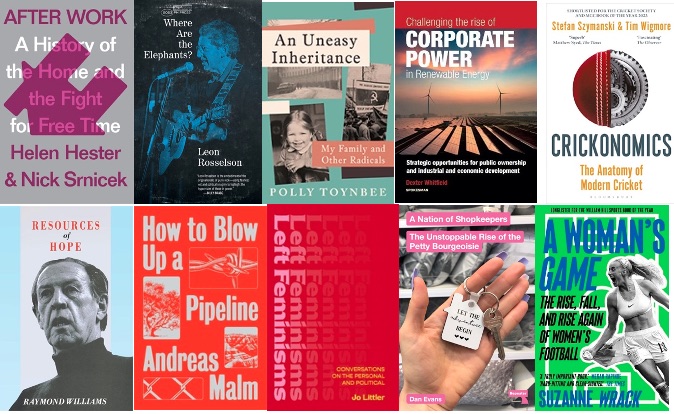
OK with southern Europe temperatures approaching sub-Saharan levels while England's south coast summer heat is close to Mediterranean a 'long hot summer' may be the last seasonal request on most of our minds. But then of course the phrase is more associated with 1968 and all that , the continental predecessor of our domestic version, the decidedly Anglicised 'winter of discontent.'
A top ten to read, revolt, and in between recline.
1. Leon Rosselson Where Are the Elephants?
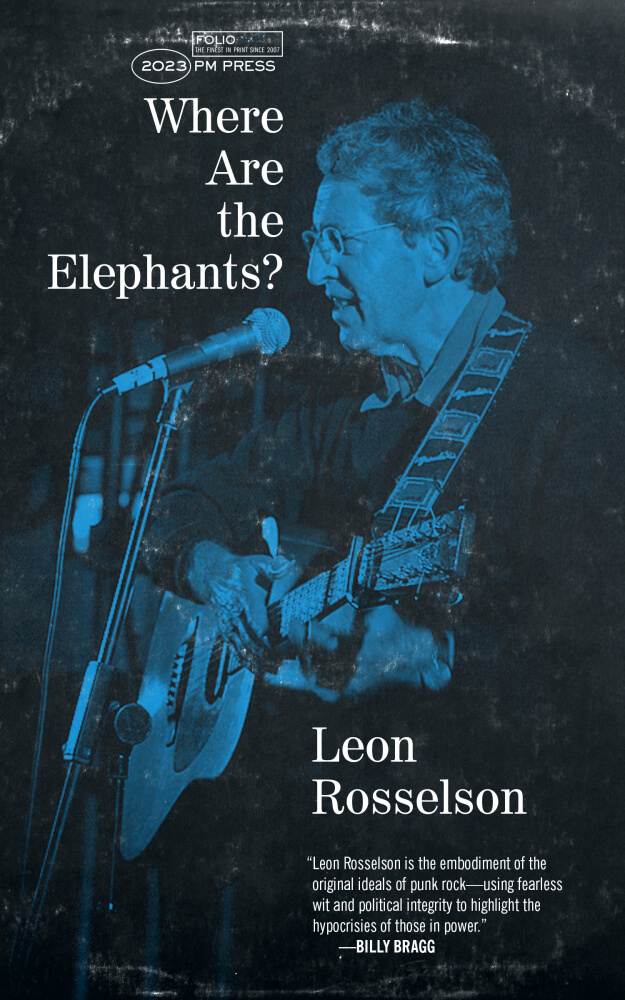
One of the founders of folk as protest Leon Rosselson weaves his own musical and political journey into an extraordinarily powerful account of how with acoustic guitar and a good tune while we may not be able dance to it the spectacle of how and why we must change the world is more than enough to have us humming along.
Available from PM Press here
2. Suzanne Wrack A Woman's Game : The Rise, Fall and Rise Again of Women's Football
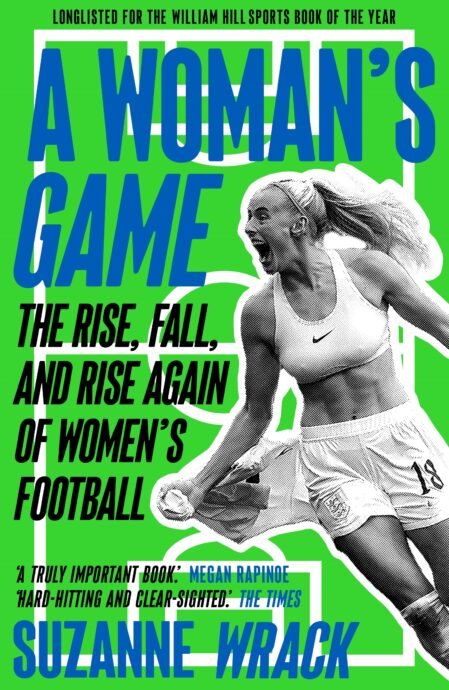
Until the 20th August Final the Women's World Cup will dominate the sporting summer, maybe. Jostling for position through the Group Stages with the Ashes and then as the knockout matches ensue the start of the men's season will likely dominate. The time difference doesn't help either. Suzy Wrack's book brilliantly explores the causes of such inequality and the force for liberation women's football can become. The Lionesses lifting the trophy wouldn't do any harm, and then some, either.
Available from Faber & Faber here
3. Stefan Szymanski and Tim Wigmore Crickonomics : The Anatomy of Modern Cricket
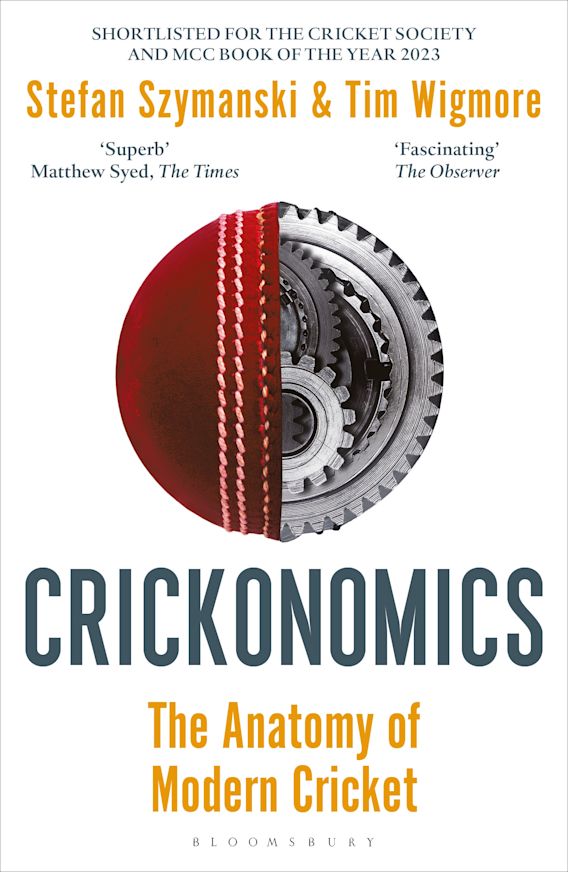
Co-author with Simon Kuper of the groundbreaking Soccernomics Stefan Szymanksi has partnered with cricket writer Tim Wigmore to do something similar for a sport that long departed the village green to become a quasi-global Behemoth. 'Quasi' in the sense that more than any other sport cricket remains framed by the legacy of Empire. Yet uniquely this sport is being reinvented from the global south, in the shape of the Indian Premier League. This is the book to get to grips with such a tasty contradiction.
Available from Bloomsbury Sport here
4. Raymond Williams Resources of Hope
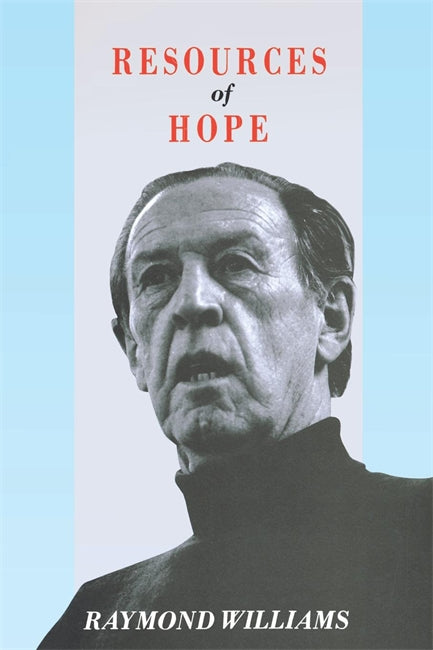
Folk music, football, cricket, what about some so-called serious reading matter? We have the theorist Raymond Williams to thank for the counter-argument 'culture is ordinary' which he brilliantly developed into the argument that it is culture that provides not only the tools for creative effort but also the means for a way of life. And crucially the latter wasn't the preserve for just 'high' culture. Want to understand idealism, gender, the post colonial? Start with music, football, cricket. Resources of Hope helps to show how.
Available from Verso here
5. Helen Hester and Nick Srnicek After Work: A History of the Home and the Fight for Free Time

What characterises the writings of Raymond Williams is a practical utopianism rooted in both a sobering assessment of the present with an abundance of hope for the future. At a super-micro level this is precisely what After Work provides, what could be more micro than the home? Yet in this space much neglected by a meta-politics our lives are shaped, relationships negotiated, prospects over-determined. As a building block for change this splendidly written book makes a most powerful case for the opposition.
Available from Verso here
6. Dan Evans A Nation of Shopkeepers : The Unstoppable Rise of the Petty Bourgeoisie

A rather good phrase that Keir Starmer has been using of late is the 'class ceiling' though whether he has the politics to shatter it remains a point of considerable conjecture, and that's putting it politely. The starting point to arrive at such a moment of change must always be a rounded understanding of class relations. Ruling Class? Tick. Working Class? Tick. The bit in the middle (sic)? Much neglected, the middle classes, Dan Evans puts that right with an extended polemic that combines the sharply critical with how such criticism can be the basis of a transformative politics to the benefit of all.
Available from Repeater here
7. Polly Toynbee An Uneasy Inheritance : My Family and Other Radicals
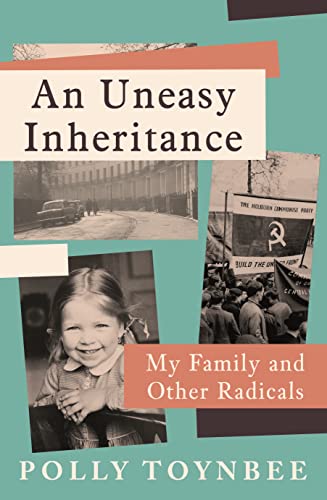
Covering similar ground, but in an entirely different way Polly Toynbee, the doyen of the tofu-eating Guardian-reading wokerati. Mixing her own family's background with a powerfully written account of Polly growing up this is the feminist maxim 'the personal is political' writ large, and very well. A soft touch compared to the Dan Evans polemic? Not at all, a plural left learns to appreciate how different contributions complement one another precisely because they are different.
Available from Atlantic books here
8. Jo Littler Left Feminisms : Conversations on the Personal and Political

The mix of left, feminism, personal and political in many ways first erupted in that faraway long hot summer of 1968 and all that came with it. A mix, an eruption, not always a happy one as documented by three of Jo Littler's interviewees Hilary Wainwright, Lynne Segal and Sheila Rowbotham in their trawl through the left ten years on from 1968 and how it (mis)treated the women involved, Beyond The Fragments : Feminism and the Making of Socialism.A superb collection of interviews but two gripes. First, described by the publisher as interviews with 'key feminist academics' this is too modest, these are women central to what left politics should look like. And second given the heritage of Soundingsjournal where these interviews first appeared some curious omissions, namely Anne Showstack Sassoon, Beatrix Campbell, Rosalind Brunt, Suzanne Moore. Why? For the second volume p'raps.
Available from Lawrence Wishart here
9. Dexter Whitfield Challenging the Rise of Corporate Power in Renewable Energy
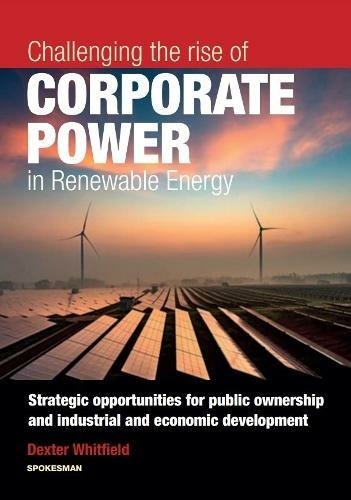
The 1968 long hot summer was heated by strikes, protest and a generational revolt. The summer of 2023 has all three but only in bits 'n bobs and without the sense of being on the edge of epochal political change. Instead our hot summer marks a different sense of such change, record-breaking temperatures for the umpteenth year in a row, southern Europe now approaching a sub-saharan climate while the sub-saharan itself is becoming uninhabitable, Northern Europe including the English south coast enjoying the Mediterranean heat. An enjoying' accompanied by soaring summertime mortality rates, the connection barely remarked upon. Greenwashing aids and abets such obfuscation. Dexter Whitfield offers an alternative, a renewable energy programme rooted in saving the planet not saving the fossil fuel industry from itself. More than enough to brighten up any beach read.
10. Andreas Malm How to Blow Up a Pipeline : Learning to Fight in a World on Fire
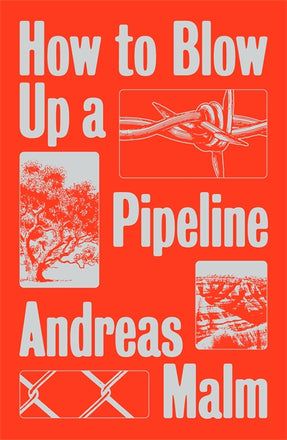
And if all else fails Anders Malm's book has the title, and as they say major motion picture, to put paid to all our nightmares of where long hot summers, and flood strewn other seasons, may be leading us to. This is a book as weapon, a manifesto for forcing change framed by the legacy of the suffragettes' direct action, civil rights movement protests , anti-apartheid boycotts, national liberation armed striggles. And updated to force us to consider how far we would go to save our planet from itself. If in doubt of the the answer ask the question how each and every one of those struggles was won.
Available from Verso here
Note no links are to Amazon, if low-wage employer tax-avoidance corporations can be avoided to purchase books, please do so.
Mark Perryman is the co-founder of the self-styled 'sporting outfitters of intellectual distinction' aka Philosophy Football